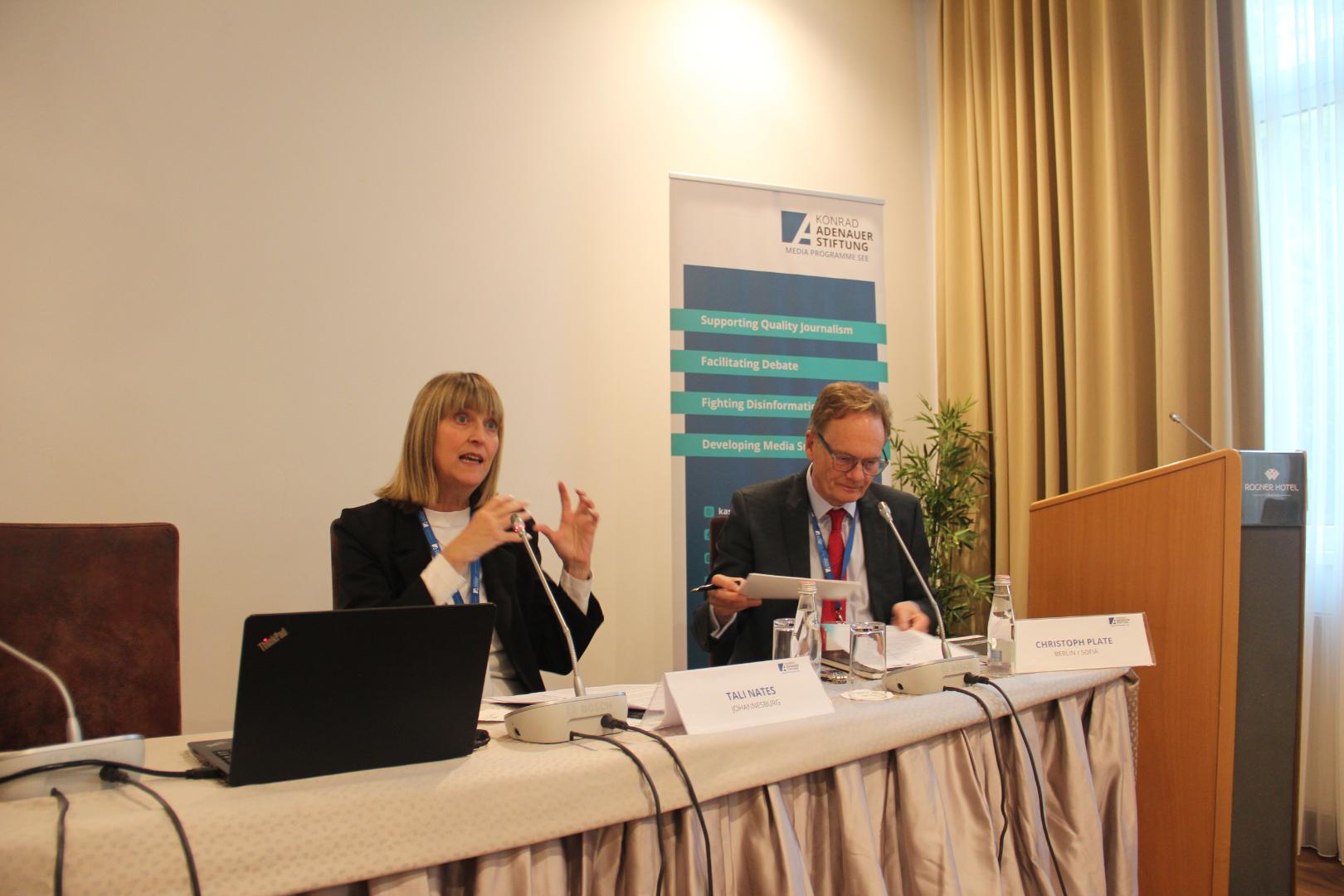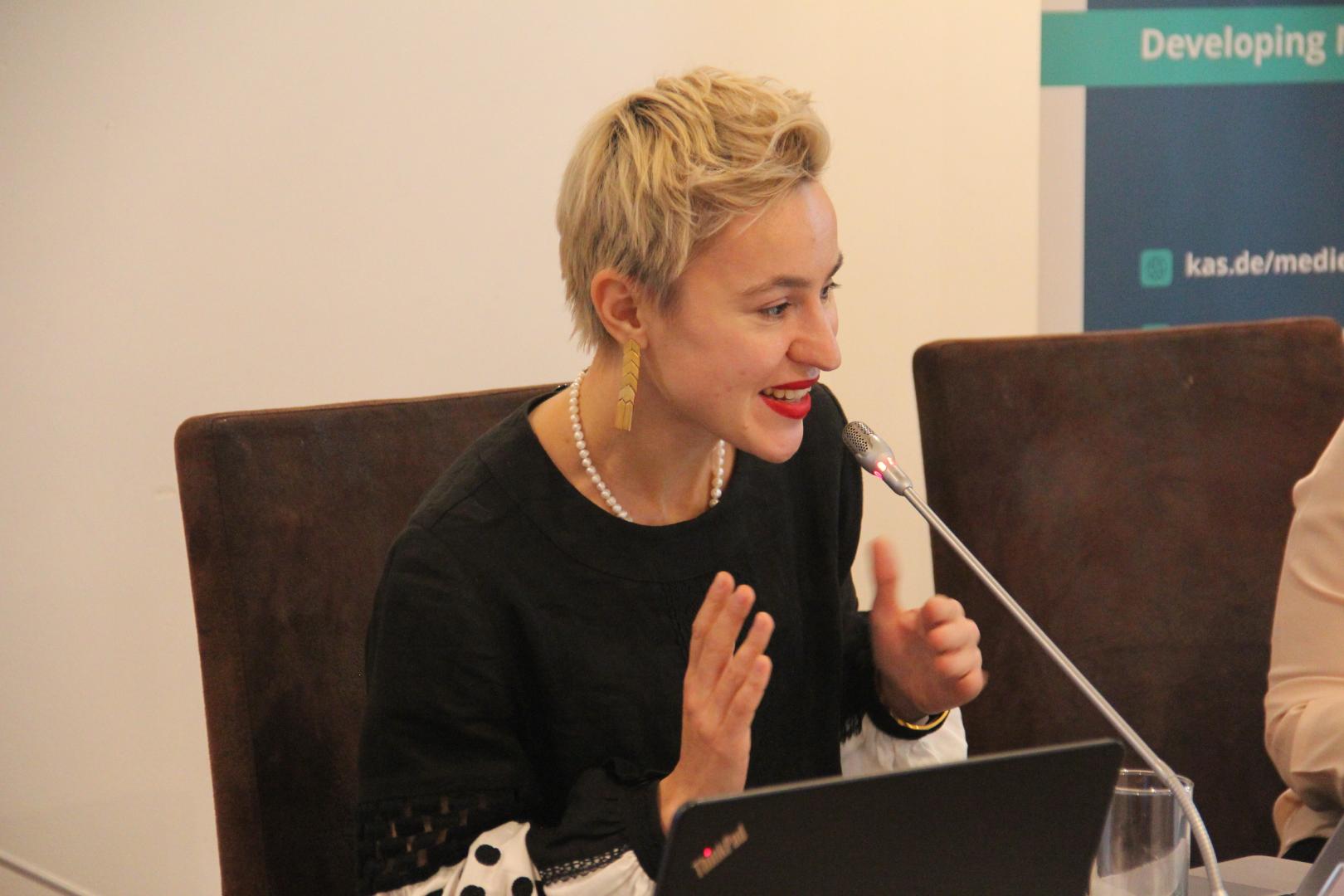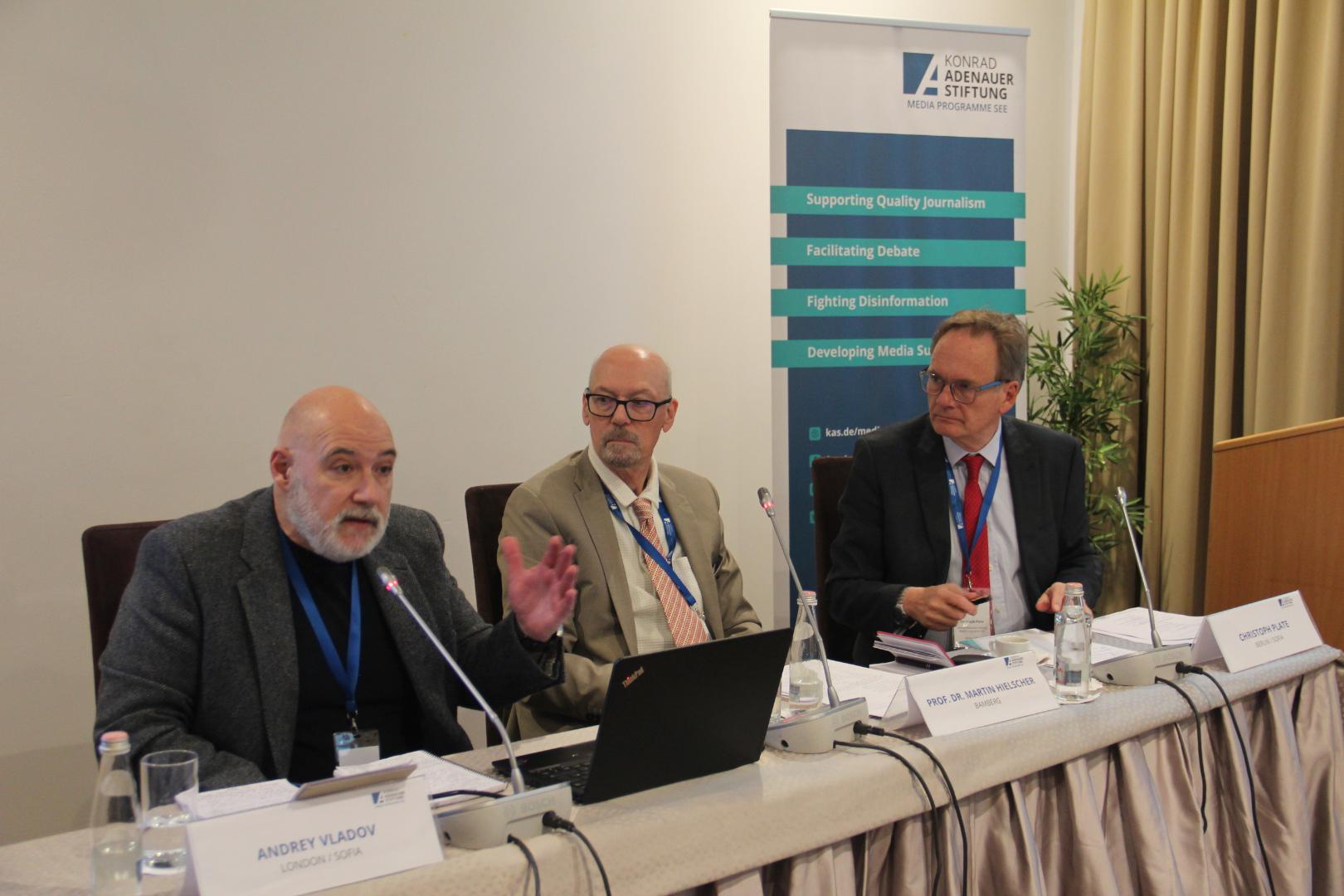The Media Programme South East Europe of the Konrad-Adenauer-Stiftung brought together participants from ten countries: Albania, Germany, Ukraine, Bosnia and Herzegovina, Bulgaria, Kosovo, Romania, Serbia, UK and South Africa, in order to explore the diverse nature of narratives and their impact on society. The event was opened by Christoph Plate, Director of KAS Media Programme South East Europe. “Narratives are important for us to build our identity and culture” he underlined. Plate commented also on the role of big tech companies and their responsibilities for spreading toxic narratives.
Some of the key topics included local and regional narratives, the role of media in shaping and spreading them, and the influence of social networks in their dissemination. The history of narratives was also discussed, emphasizing their dual nature—not necessarily harmful, but essential for uniting polarized societies.
The conference also delved into the narratives in Ukraine and how they evolved before and after the beginning of the Russian war of aggression. Furthermore, the event discussed the usage of monuments in post-socialist societies as powerful tools for falsification of history narratives.
A global perspective was provided by Tali Nates, Director of the Johannesburg Holocaust & Genocide Centre, who shared insights on the role of narratives in overcoming trauma, drawing from the histories of South Africa and Rwanda. Discussions also addressed the European Union’s challenge in crafting a unified message that resonates with all its member and candidate states, questioning why the EU often feels alien for many of its citizens.








